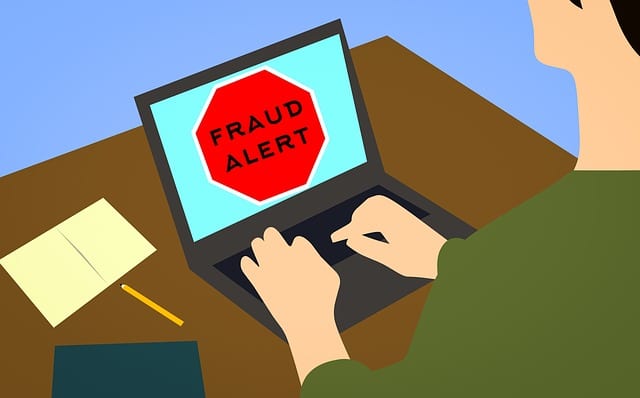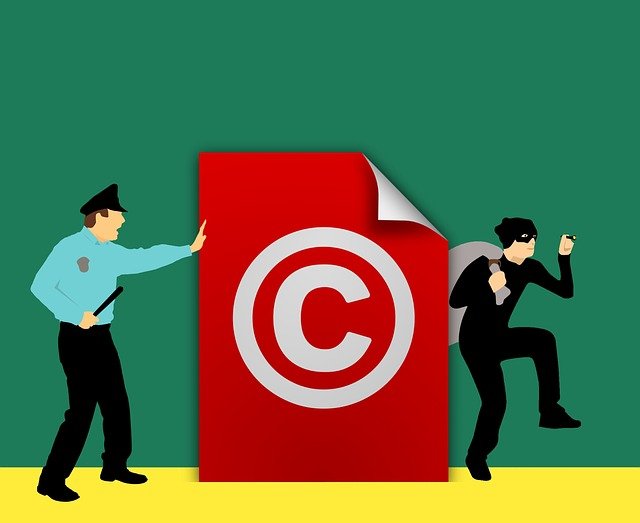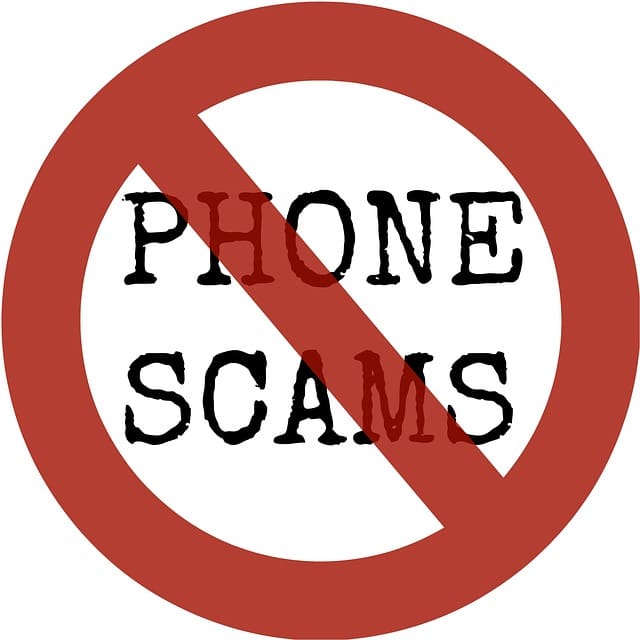Scam Alert! Everything You Need to Know about Fraudulent Ghostwriters and Publishers
June 18, 2021
The internet abounds with ads offering a miraculous gateway to achieving book publishing success. These ads claim to hold a secret system or effective formula for producing best sellers. And they offer a foolproof way of making easy money through book sales.
Many of these ads are for so-called “ghostwriting” or “publishing” companies.
But are these companies legitimate? Do they really deliver on what they promise? Most importantly, are these ads truly what they seem?
In this article, we will explore how unscrupulous ghostwriting and publishing companies attempt to cash in on unsuspecting authors, especially after reputable publishing houses have turned them down. We will also look into major red flags that signal possible scams.
Ghostwriting Scams

Ghostwriters are everywhere.
A quick Google search will reveal many ads by companies claiming they can deliver high-quality content within a tight turnaround time.
But frequently, such promises are too good to be true.
The fact is, high-quality writing is not easy to come by, and is usually something that takes time. Often, the writing process may take months or even years.
Nevertheless, talented writers can produce great content within a reasonable time window. And many of these writers make an honest living as ghostwriters.
Unfortunately, though, there are some ghostwriters (or ghostwriting companies) who are less than honorable in their practices and, in turn, give ghostwriting a bad rap.
Here are some ways in which shady ghostwriting companies scam unwary authors.
Failure to Produce Content
A ghostwriting company that demands their entire payment in advance should immediately set off red flags.
These companies scam people by pretending to serve their clients, producing little to no content, and then disappearing once the money is in their hands.
Sadly, these actions are not uncommon. They are a pervasive phenomenon that has led to ghostwriting’s negative public perception.
Plagiarized/Stollen Work
Plagiarism is an enormous issue with disreputable ghostwriters. These individuals scam their clients by collecting fees for non-original content.
In other words, these deceptive ghostwriters pass off someone else’s content as their own.
Thanks to plagiarism detectors, this scam is relatively easy to detect.
Nevertheless, an unsuspecting client might make advance payments before discovering the plagiarized content.

Additionally, some shady ghostwriters take stolen content and present it in a rewritten form. This technique avoids plagiarism detection. However, it piggybacks off other people’s hard work.
While not illegal, it is certainly morally questionable.
Book Stuffing
Another harmful practice is book stuffing. Book stuffing consists of artificially adding pages to increase a book’s overall size.
In some instances, the additional content is completely inconsistent with the book’s title or purported topic.
While online publishing platforms like Amazon’s Kindle have attempted to crack down on this practice, the reality is that phony ghostwriters have been known to jam various pieces of content into a manuscript to reach word or page counts.
Unsubstantiated Claims and Non-Factual Information
Other unsavory practices include unsubstantiated claims or non-factual information within content.
This occurs when dishonest ghostwriters fail to put research into the content they produce, and instead rush through the writing and essentially make it up as they go.
This practice is highly dangerous as it can easily jeopardize an author’s reputation.
Low-Quality Work
Lastly, there are low-quality ghostwriters. These writers may not plagiarize or steal content, but their work is subpar. The content they deliver often contains poor grammar, incoherent prose, or fails to deliver on expectations.
Such results may not constitute a scam on their own. However, if the ghostwriting service charges a premium for their services, mediocre work certainly represents a dishonest practice.
Publishing Scams
Fraudulent ghostwriting companies often have ties to equally phony publishing companies.

These so-called publishers offer aspiring authors a ray of hope, especially when reputable publishers have turned them down.
Nowadays, the self-publishing phenomenon has enabled would-be authors to get their work out there without the need for a traditional publisher.
However, self-publishing is not quite as easy as it seems.
First of all, a manuscript is just a manuscript. Without editing, cover design, and publishing, it will have little chance of becoming a full-fledged book.
This point is where publishing scams grip aspiring authors.
Underdelivering on Services
The most common scam writers face with phony publishers is underdelivering services.
It is quite common to find advisors and consultants offering a magic bullet to boost sales and improve visibility. Unfortunately, the reality can be quite the opposite.
An insightful piece on Publisher’s Weekly offers this interesting tidbit:
“As [self-publishing] services have proliferated, promising all variety of benefits and recipes for boosting sales, it’s more important than ever for indie authors to have a discerning eye when seeking out assistance.”
Indeed, these supposed publishing consultants offer a full scope of services but tend to fall short. Therefore, aspiring or “indie” authors must have a clear vision of what they need, and be sure that their chosen publisher is actually equipped to provide that help.
Blocking Copyright Registration
The risk of dealing with fraudulent companies does not stop with subpar service. There are other alarming issues to consider, as well.
One of the most concerning scams pertain to blocking copyright registration.
Copyright protection is an essential step in publishing materials. As such, unscrupulous publishing firms lead authors to believe that obtaining copyright protection is a complex process.
Moreover, these companies charge additional fees for copyright consulting services.

In reality, registering books is rather straightforward. Purchasing an International Standard Book Number (ISBN) can cost roughly $125 with the U.S. ISBN Agency. And, copyright protection costs a mere $35 with the Library of Congress.
Nevertheless, scammers make this process hard for authors so they can access their material for free.
So-called publishers can reuse the material to cheat other clients or pass it off as their own. In short, these companies appropriate the author’s intellectual property.
Misappropriation of Royalties
Lastly, some unlawful publishers scam authors out of their royalty rights by producing convoluted contracts intended to confuse authors.
Consequently, authors unknowingly sign over their rights. After that, the publishing firm may never pay a penny to the writer.
While this practice does not necessarily constitute appropriation of intellectual property, the publisher holds the commercial rights. Ultimately, the author loses the right to profit from their works.
Identifying Fraudulent Companies
Spotting a fraudulent publisher or ghostwriting firm is mainly a question of looking out for red flags.
Clever scammers will use their bag of tricks to appear legitimate. However, there are some signs that are good indications that the ghostwriter or publisher may not be all that they seem.
Here are some things to watch out for.
Unusually Fast Pace
The telltale sign of scam artists is their pace. Quality writing does not happen overnight. And reputable publishers often take weeks, if not months, to move through the publishing process.
As such, any company claiming to write and/or publish books in a matter of days should raise red flags.
Hiding True Identity
Company names reveal so much about a business’ true identity. Often, cheaters will set up their companies to resemble established publishers by using a name that is similar to that of a well-known firm. This practice gives unsuspecting authors a false sense of security.
And some dishonest individuals will even masquerade as reputable publishers.
As such, always conduct an online search before signing on with any such company. In particular, avoid sending over any materials until you are confident that you are dealing with a reliable organization.
Fraudulent Calls and Contests

Another common practice is fake calls or contests.
In these scams, fraudsters have an open call for work such as short stories, poems, or children’s tales. The cheaters receive the entries and then publish them without the authors’ consent.
This practice aims to generate traffic or serve as clickbait for other endeavors. Ultimately, the scammer gets free content, thereby misappropriating the rights to the content.
These kinds of scams are hallmarked by their vague terms and conditions.
Respected publishers post extremely detailed instructions and guidelines. Therefore, any loose or unclear guidelines should constitute a major red flag.
Excessive Flattery
Additionally, flattery is a simple yet effective way of scamming aspiring authors.
Both publishers and ghostwriters use flattery to gain their clients’ trust. The aim is to butter up unsuspecting clients, so they buy into scammers’ services.
Phrases such as “You have worked so hard, and we intend to share your voice with the world” should represent a definitive red flag.
These statements manipulate authors’ sentiments by falsely acknowledging their hard work and passion.
While everyone appreciates positive comments, legitimate book agents and publishers seldom provide so much praise for someone who has never published a book. As such, excessive flattery is a dead giveaway.
Charging Excess Reading Fees
Perhaps the most evident red flag is excessive upfront fees.
Victoria Strauss, a writer and co-founder of Writer Beware, an organization devoted to warning writers of publishing scams, had this to say about so-called “reading fees:”
“A reading fee is a fee charged by a literary agent for reading a submitted manuscript — typically, anywhere from $50 to a few hundred dollars. The idea is that the agent is investing valuable time to read the manuscript — which, if they wind up rejecting the manuscript, will be uncompensated.”
For some fraudulent publishers, reading fees are a get-rich-quick scheme. After charging thousands of writers for worthless reading fees, scammers either disappear or merely change their names. Writers then have nothing to show for the money they’ve forked out.
Ultimately, the best guard against scam artists is to do one’s due diligence. An online search may reveal enough to stave off an attempted con.
Dealing with Fraudulent Firms
Undoubtedly, no one wants to fall into one of the scams outlined in this article. However, there are times when writers do fall into one of these traps. Therefore, it is important to realize what options are available to remediate fraud.
First, the most effective measure against fraudsters is prevention. Thus, obtaining legal copyright is a major step toward preventing frauds such as misappropriation or intellectual property theft.
Registering a finished manuscript with the Library of Congress and purchasing an ISBN identification can help authors prove ownership of their works.
Copyright.gov allows authors to copyright their works online. This process is straightforward and can help writers protect their manuscripts before submitting them for consideration.
Generally speaking, electronic registration fees are relatively affordable. For instance, registering one work by a single author costs roughly $45. A standard application, which can allow an author to register various works, costs about $65.
This process is straightforward and takes less than an hour to do.
It is important to note that suing a fake publisher or book agent may be quite difficult. Sadly, many of these phony companies do not have any real representation.
Nevertheless, authors can ask sites or platforms like Amazon Kindle to take down unauthorized publications. In such situations, authors can file a complaint with Amazon, who will investigate and take appropriate action.
Perhaps the biggest weapon that authors have to protect themselves against scams is a good contract.
Reputable publishing and ghostwriting companies facilitate the contractual process to boost client confidence.
In doing so, clients can review the terms and conditions beforehand. And, if necessary, they can employ legal counsel to avoid unsavory experiences.

Moreover, transparency boosts any firm’s credibility. Consequently, writers should take the time to go over the terms and conditions before making a final agreement.
Ghostwriters or publishers that do not agree to a contract represent a huge risk and should be avoided.
Conclusion
Ghostwriting and publishing services can help aspiring authors get their message out to the world. These services are especially handy when traditional publishers turn down unknown authors.
However, up-and-coming authors must exercise caution.
Whenever an author shops a manuscript around, they must take time to copyright their work beforehand. With a copyright registration, authors can protect their works from misappropriation.
Writers should also thoroughly vet any publisher or ghostwriter before doing business with them. An online search can reveal much about the reputation of a supposed ghostwriting firm.
Additionally, user comments can provide actionable insight into the quality of services these firms provide.
It is also crucial to keep an eye out for red flags. These flags generally consist of signs such as lack of transparency or an unusually fast pace to publication. Furthermore, any excessive upfront charges are a clear sign of a potential scam.
Please bear in mind that reputable companies strive to bolster transparency. In doing so, trustworthy firms ensure client satisfaction and a strong reputation.
Nevertheless, it is always a good idea to double-check contracts before signing. In the end, a good contract can make the difference between a successful publication and a sour experience.































nice blog !